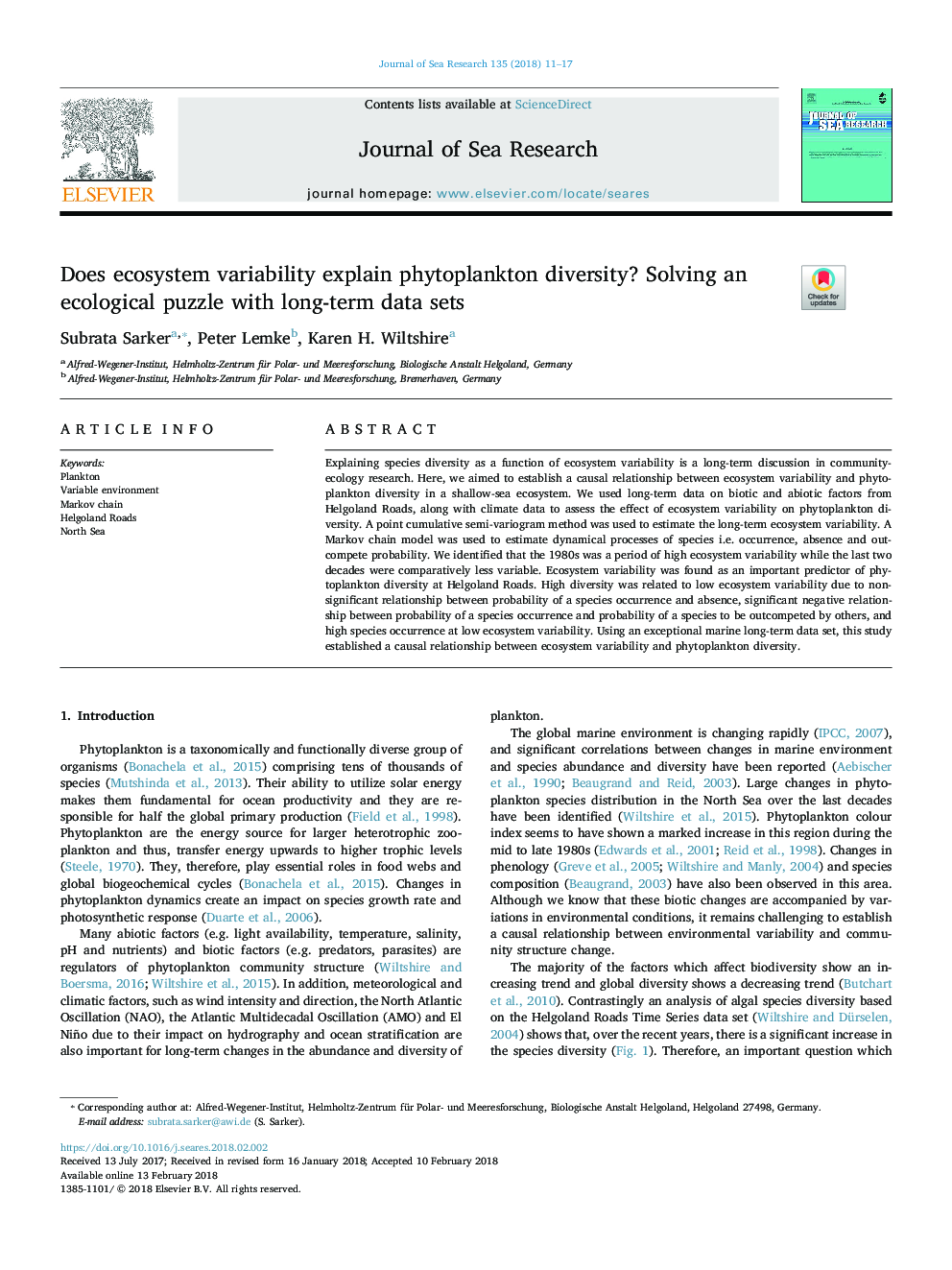| Article ID | Journal | Published Year | Pages | File Type |
|---|---|---|---|---|
| 8886126 | Journal of Sea Research | 2018 | 7 Pages |
Abstract
Explaining species diversity as a function of ecosystem variability is a long-term discussion in community-ecology research. Here, we aimed to establish a causal relationship between ecosystem variability and phytoplankton diversity in a shallow-sea ecosystem. We used long-term data on biotic and abiotic factors from Helgoland Roads, along with climate data to assess the effect of ecosystem variability on phytoplankton diversity. A point cumulative semi-variogram method was used to estimate the long-term ecosystem variability. A Markov chain model was used to estimate dynamical processes of species i.e. occurrence, absence and outcompete probability. We identified that the 1980s was a period of high ecosystem variability while the last two decades were comparatively less variable. Ecosystem variability was found as an important predictor of phytoplankton diversity at Helgoland Roads. High diversity was related to low ecosystem variability due to non-significant relationship between probability of a species occurrence and absence, significant negative relationship between probability of a species occurrence and probability of a species to be outcompeted by others, and high species occurrence at low ecosystem variability. Using an exceptional marine long-term data set, this study established a causal relationship between ecosystem variability and phytoplankton diversity.
Related Topics
Physical Sciences and Engineering
Earth and Planetary Sciences
Oceanography
Authors
Subrata Sarker, Peter Lemke, Karen H. Wiltshire,
